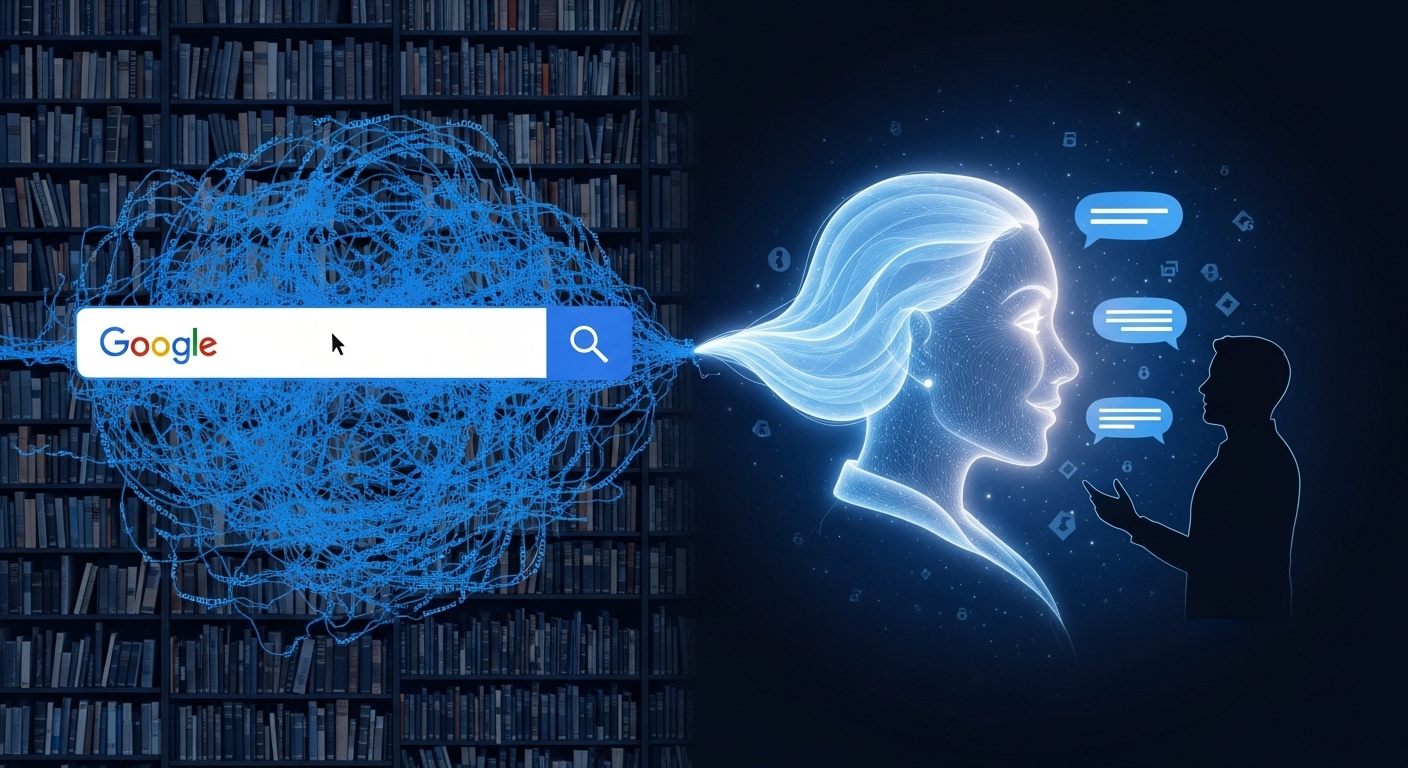For decades, search has been the primary gateway to information across the globe, a solitary white bar, a blinking cursor, and the quiet confidence that somewhere within billions of blue hyperlinks lies the truth. Then came a shift, not a database but a dialogue. ChatGPT transformed not only how we search but also how we think about seeking answers.
As users grow increasingly comfortable posing questions in conversational form, one question lingers: Can ChatGPT truly replace Google? Sam Altman, the CEO of OpenAI, doesn’t think so. And he may well be right.
The Legacy of Search
Google is not merely a company; it is infrastructure. After twenty-five years of crawling, indexing, and ranking, it has become a reflection of the internet itself, a living archive of human knowledge, meticulously ordered through computation, precision, and relentless optimisation. Its recent foray into AI-powered search through Gemini and AI Overviews reveals one truth: Google recognises that the landscape is changing. Yet, like any established giant, it is not in a hurry to replace itself. Instead, it is weaving AI into its DNA while preserving its defining principle of openness through sourced information. When you “Google” something, you receive not just an answer but also evidence, or at least the impression of it.
The Rise of the Conversational Machine
ChatGPT, on the other hand, does not point; it speaks. It functions like a journalist, researcher, and storyteller rolled into one. Rather than directing you to read a hundred pages, it distils the essence for you. It slices through the noise and simplifies complexity. Yet, clarity comes at a cost: transparency. What you see is the response, not the architecture behind it. That duality makes it both powerful and perilous. ChatGPT doesn’t merely present information; it interprets it. Within that interpretation lie bias, influence, and the potential for error. Still, perhaps that’s precisely what people seek: meaning, not just data.
The Truth Problem
Google’s perennial challenge has been excess, too many links and too little truth. ChatGPT’s problem is the reverse, too few sources and too much trust. Google hands you the haystack; ChatGPT gives you the needle, whether or not it’s the right one. Their difference is not purely technical but philosophical. Do we prefer truth that is tangled, or clarity that is uncertain? Do we want to explore, or do we wish to be instructed?
The Future of Search Is Conversational
The real story is not about substitution but convergence. Google is becoming more conversational; ChatGPT is becoming better at search. Within a few years, the boundary between them may fade altogether. Imagine a world where search results unfold as a conversation rather than a static list, where every query becomes an exchange between human curiosity and machine intelligence. That vision is not science fiction; it is the emerging user interface of the internet. When that moment arrives, search will no longer be about retrieving answers. It will be about understanding questions.
A Closing Thought
Google taught us how to find information. ChatGPT is teaching us how to think about it. Knowledge will not belong solely to search engines or to artificial intelligence. It will belong to those who can balance both, seekers who understand how to question as deeply as they search. In the end, this is not a war for the web. It is a collaboration for the mind.
ALSO WATCH MARKETING EDGE ONTV







Comment
No comments found.